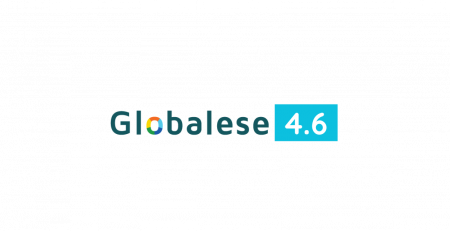Globalese 1.5 is here bringing quality estimation matrices, integration novelties, and an all-new API.
Enhancements
quality estimation becomes...
read more
Globalese 2.3.2 fixes the following issues:
"Required parameters missing" error when creating a project through the API.
Tuning errors.
Errors when trying to...
read more
Fixes
Non-administrators can see the Log tabs of corpora, engines and project files.When importing TMs or TBs from a CAT...
read more
The major update in this release is the switch of the underlying neural network model from RNN (Recurrent Neural Network)...
read more

Globalese 4.6 has been released. Check out the latest features and fixes.
read more
Globalese 1.4.4 delivers some minor enhancements and some important fixes:
MQXLZ files can now be uploaded to tune engines, and can...
read more
Globalese 1.3.2 delivers the following fixes:
Improved handling of multilingual TMX and TBX files.
memoQ file parser bug fixed.
Handling of invalid language...
read more
Globalese 1.7.12 fixes the following issues:
Translation error for segments containing certain HTML entities.
read more
Globalese 2.12.1 fixes the following issues:
DELETE API calls failed.
When using the SAP Translation Hub for a project, global settings did not...
read more
What's new
The focus in the latest release of Globalese is on corpus lifecycle management.
Corpora in Globalese are maintained centrally,...
read more

